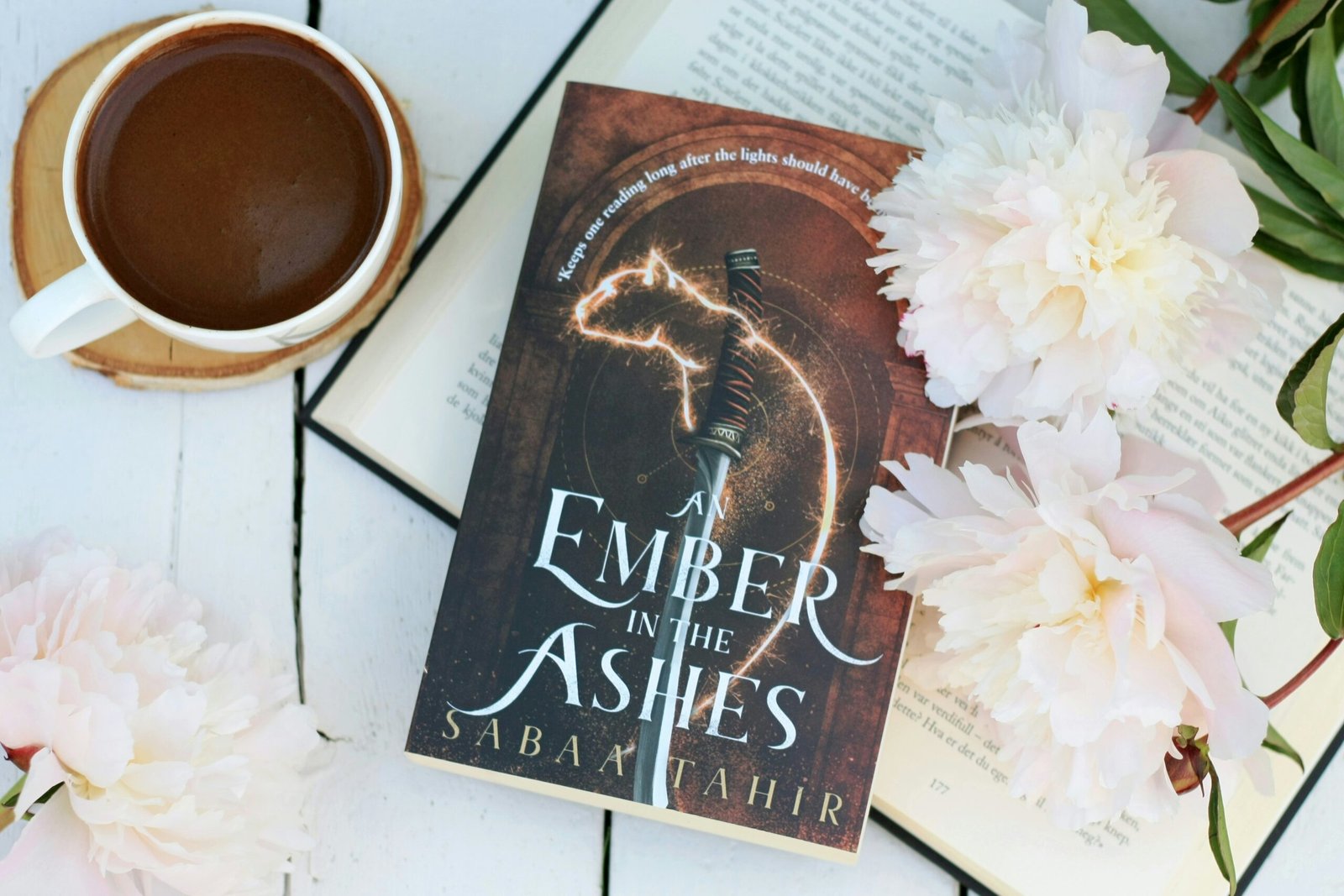The Classic Foundations: Timeless Fantasy Epics
The fantasy genre owes its roots to several seminal works that have become cornerstones of fantastical storytelling. J.R.R. Tolkien’s ‘The Lord of the Rings’ is perhaps the most influential among these classical epics. Published in the mid-20th century, this monumental series redefined fantasy literature with its richly crafted world of Middle-earth, complete with its own languages, histories, and cultures. Tolkien’s intricate narrative has set a high bar for world-building in the genre and has inspired countless authors to weave similar tapestries of immersive, imaginary realms.
Equally noteworthy is C.S. Lewis’s ‘The Chronicles of Narnia,’ which has introduced generations of readers to the wonders of fantastical worlds. Starting with ‘The Lion, the Witch and the Wardrobe,’ Lewis’s series explores themes of bravery, faith, and the eternal battle between good and evil, often interpreted through a lens of allegory. The accessible and enchanting nature of these books makes them a gateway for young readers into the genre of fantasy, ensuring their lasting appeal and significant cultural impact.
Another foundational work is Ursula K. Le Guin’s ‘The Earthsea Cycle.’ Comprising novels such as ‘A Wizard of Earthsea’ and ‘The Tombs of Atuan,’ Le Guin’s series stands out for its sophisticated approach to magic and its philosophical underpinnings. Her narrative encompasses themes of balance, identity, and the consequences of wielding power, helping to elevate fantasy literature to a level of literary merit recognised by both critics and readers.
Lastly, Roger Zelazny’s ‘The Chronicles of Amber’ deserves mention for its unique blend of myth, magic, and modernity. Through the tales of the ruling family of Amber and their shifting dimensions, Zelazny deftly combines elements of science fiction and fantasy, carving a niche that has influenced multiple sub-genres. His innovative approach to narrative structure and character development remains inspirational.
These classic works form the bedrock upon which contemporary fantasy is built, highlighting the timeless appeal of epic storytelling and the enduring power of imagination.
Modern Masterpieces: Contemporary Fantasy Literature
In the realm of modern fantasy literature, few series stand as tall as George R.R. Martin’s ‘A Song of Ice and Fire’. With its labyrinthine political intrigue and morally complex characters, the series has redefined the boundaries of the genre. What sets Martin apart is his ability to weave multiple storylines with a deft hand, ensuring that no character is without depth or consequence. This intricacy is complemented by a grim, realistic portrayal of power struggles, drawing readers into a world where mercy is rare and heroics come with a cost.
The ‘Harry Potter‘ series by J.K. Rowling has also left an indelible mark on contemporary fantasy. Introducing a generation to the wizarding world, Rowling’s work did more than tell a coming-of-age story; it sparked a global cultural phenomenon. The series transcends age boundaries, appealing to both children and adults alike through its intricate blend of fantasy, adventure, and emotional depth. Its widespread appeal has not only popularized the fantasy genre but also paved the way for subsequent narratives to receive mainstream acceptance and acclaim.
Patrick Rothfuss’s ‘The Kingkiller Chronicle‘ offers a different yet equally compelling take on fantasy literature. With its richly detailed world-building and lyrical prose, it tells the story of Kvothe, a gifted young man navigating life’s trials and the mysteries of his mythical world. Rothfuss’s storytelling is both intimate and epic, a testament to his ability to capture the reader’s imagination while exploring themes of knowledge, power, and myth.
Brandon Sanderson’s ‘Stormlight Archive‘ series further expands the contemporary fantasy landscape with its intricate magic systems and complex, interwoven storylines. Sanderson’s meticulous approach to world-building and character development has garnered a dedicated fanbase, solidifying his reputation as a master of the genre. His innovation in crafting unique magical mechanics and his penchant for writing long, immersive stories contributes significantly to the evolving tapestry of modern fantasy literature.
Hidden Gems: Underrated Fantasy Books You Must Discover
While mainstream bestsellers often steal the spotlight in the fantasy genre, numerous lesser-known novels have miraculously maintained their immense depth and richness. These hidden gems deserve a dedicated space on your reading list. One such series is ‘The Black Company‘ by Glen Cook, which stands out for its gritty, realistic portrayal of a mercenary group. Set in a grim world where moral ambiguity reigns supreme, Cook’s narrative immerses readers in a tale where the lines between good and evil blur profoundly. The story’s unflinching honesty and grounded characters offer a refreshing departure from more traditional, heroic fantasy narratives.
For those captivated by the intricate weave of mythology and fantasy, Guy Gavriel Kay’s ‘Under Heaven‘ holds a unique allure. This exceptional work draws inspiration from Tang Dynasty China, blending Eastern mythology seamlessly with fantasy elements. The meticulous world-building and lyrical prose envelop readers in a vivid cultural tapestry, exploring themes of duty, love, and tragedy. Kay’s ability to intertwine historical context with fantastical elements results in a captivating and emotionally resonant narrative.
Another noteworthy mention is ‘The Broken Empire‘ series by Mark Lawrence. This trilogy is celebrated for its dark and morally complex storyline, focusing on the rise of its anti-hero protagonist, Jorg Ancrath. Set in a dystopian world marred by violence and treachery, Lawrence’s work questions the conventional notions of heroism and valor. The protagonist’s stark, often brutal journey towards power and redemption provides a thought-provoking exploration of humanity’s darker aspects and ethical dilemmas. The series’ raw portrayal of ambition and survival stands as a compelling counterpoint to more formulaic fantasy adventures.
Diving into these undervalued fantasy books, readers will find themselves enthralled by the rich storytelling and complex characters that offer much more than mainstream titles. These hidden treasures, each with their distinctive narrative and thematic strengths, enrich the literary landscape and should not be overlooked by any avid fantasy aficionado.
The Diverse Voices: Inclusivity in Fantasy Literature
Fantasy literature has historically been dominated by Western-centric narratives, but recent years have witnessed a significant shift. Authors from diverse cultural backgrounds are bringing fresh perspectives to the genre, which, in turn, enriches the world of fantasy with varied themes and narratives.
One of the most prominent voices in this movement is N.K. Jemisin. Her ‘Broken Earth‘ trilogy is nothing short of a masterpiece, intertwining elements of racial and social justice within its groundbreaking narrative. Jemisin’s work stands out not only for its complex characters and intricate world-building but also for its exploration of oppression, environmental catastrophe, and resilience. Her novels serve as a poignant commentary on real-world issues, making the fantasy genre more reflective of diverse experiences and struggles.
Similarly, Marlon James’s ‘Black Leopard, Red Wolf‘ transports readers to a vibrant, richly-imagined African-inspired world. James weaves together African mythology and history, creating a multi-layered narrative that defies conventional genre norms. His storytelling is dense and challenging, offering a compelling blend of the familiar and the unknown. This work underscores the significance of different cultural contexts in enriching fantasy literature with unique stories and viewpoints.
Adding to this tapestry of diversity is R.F. Kuang’s ‘The Poppy War‘, a novel deeply rooted in modern Chinese history and mythology. Kuang’s narrative is stark and powerful, delving into themes of war, identity, and transformation. Similarly, Tomi Adeyemi’s ‘Children of Blood and Bone’ brings West African Orisha mythology to the forefront, providing readers with an epic tale of magic, rebellion, and hope. Both of these works challenge and expand the boundaries of traditional fantasy, presenting stories that resonate on multiple levels.
The inclusion of voices from various backgrounds is transforming fantasy literature, making it more inclusive and representative of the diverse world we live in. These authors and their groundbreaking works are not only revolutionizing the genre but also ensuring that fantasy remains a dynamic and evolving field, rich with fresh narratives and perspectives.






Thanks a lot for sharing this with all folks you
really understand what you’re talking about! Bookmarked.
Kindly additionally seek advice from my websute =). We could have a link
alternate arrngement among us https://Lvivforum.pp.ua/
Thanks a lot ffor sharing this with all folks youu really
understand what you’re talking about! Bookmarked. Kindly additionaly seek advice froom my website =).
We could have a link alternate arrangement among us https://Lvivforum.pp.ua/
seo просування ціна
Чтобы добиться наилучших результатов, необходимо изучить работа с хрумером и его основные настройки.